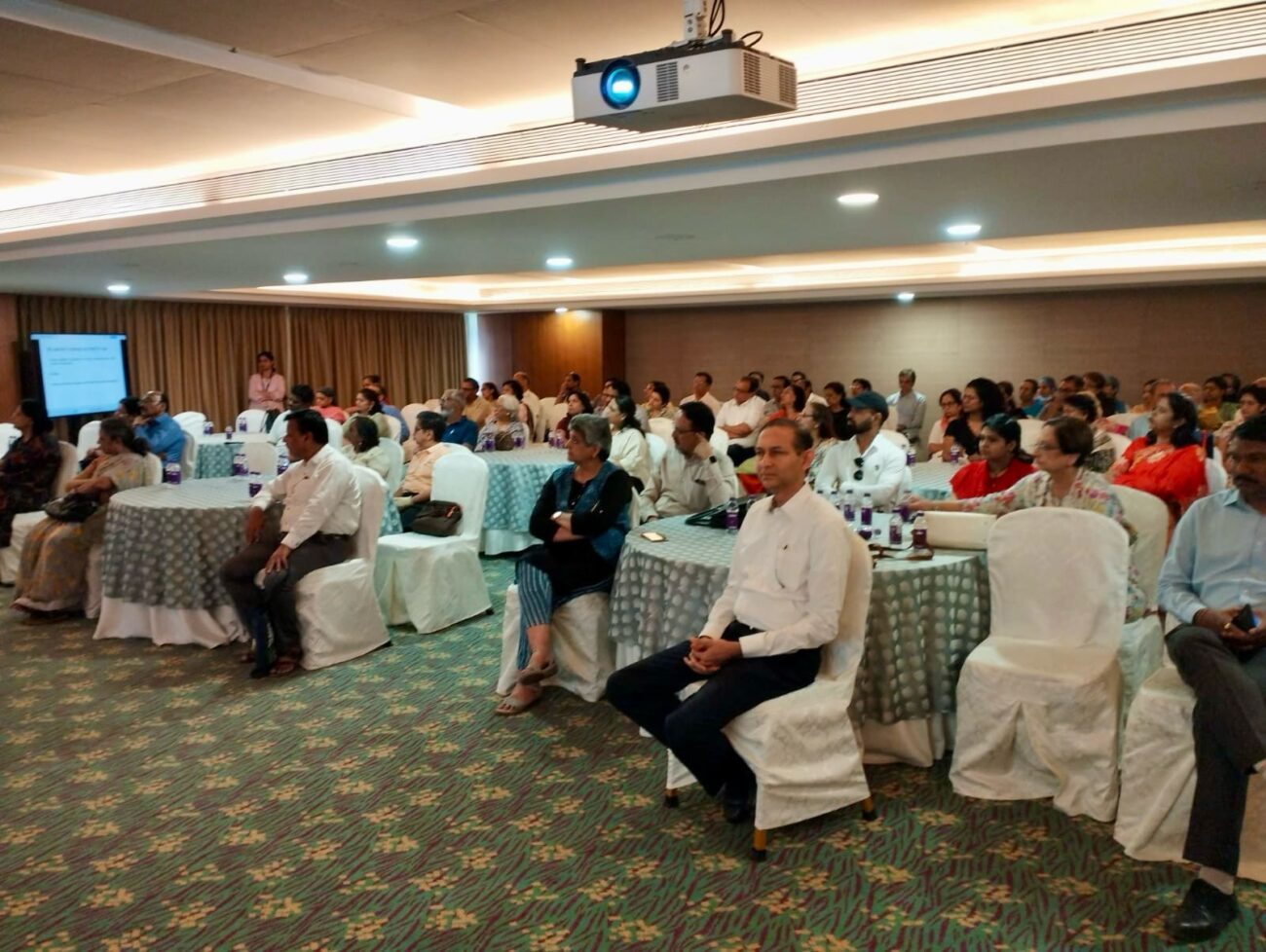World Immunization Week 23rd – 29th April 2019
Dr. Preeti Sharma, Consultant Pediatrician, KIMS Cuddles, Kondapur. Immunization saves millions of lives and is widely recognized as one of the world’s most successful and cost-effective health interventions.This year’s theme of world immunization week (celebrated in last week
Dr. Preeti Sharma,
Consultant Pediatrician,
KIMS Cuddles, Kondapur.
Immunization saves millions of lives and is widely recognized as one of the world’s most successful and cost-effective health interventions.This year’s theme of world immunization week (celebrated in last week of April):Protected Together: Vaccines Work!, and the campaign will celebrate Vaccine Heroes from around the world – from parents and community members to health workers and innovators – who help ensure we are all protected through the power of vaccines.
The Intensified Mission Indradhanush in India aims to achieve 90% immunization against basic diseases. But according to the national family health survey approximately 38 % children are still under or unimmunized.
But even those parents who have access to healthcare have different perspectives on vaccination. Some parents will go for all vaccines including the optional ones dilligently on time. Most parents do take the mandatory vaccinations for their child but are very skeptical about the optional vaccines. Optional vaccines are the ones that are not part of the government immunization schedule. But are they optional in the real sense of the word? The answer is no. The government has many economic and logistic issues before it can introduce a vaccination in its schedule. Over the last few years many vaccines whice were initially optional are now given at government centers – HiB vaccine, Injectable polio vaccine, in some areas rotavirus vaccine.
Here is the information about the important optional vaccines and the diseases they prevent.
Pneumococcal vaccine – protects against diseases caused by Streptococcus pneumoniae which is a major cause of illness and death in children. Under 2 years of age it is the commonest organism to cause pneumonia. It can also cause meningitis and otitis media in children. Out of all under 5 deaths, 10% are caused by pneumococcal disease. This vaccine is mandatory in most other countries.
 Rotavirus vaccine – Rotaviruses are globally the leading cause of severe, dehydrating diarrhea in children aged <5 years. In India 80% of primary rotavirus infection occur among infants <1 year old. Studies estimate that 90,000–153,000 children die from rotavirus infection in India every year. The government of India has also introduced rotavirus vaccine in few places.
Hepatitis A vaccine - Hepatitis A is a serious liver disease. It is caused by the hepatitis A virus (HAV). HAV is spread from person to person through contact with the stool of people who are infected, which can easily happen if someone does not wash his or her hands properly. It is the commonest infectious cause of jaundice. The best way to prevent hepatitis A infection is to get vaccinated.
Chickenpox vaccine - Chickenpox is a very contagious disease. Many parents feel that as chicken pox is a mild disease, there is no advantage of getting their child vaccinated. But chickenpox can be serious with complications like pneumonia, especially in babies, adults, and people with weakened immune systems. Chicken pox in pregnancy can have serious consequences in the fetus. It can also lead to long absenteeism from school and in adults from work.
Meningococcal vaccine – protects against meningitis and sepsis caused by a bacteria N.meningitidis. Even though most people have not heard of this disease, it is extremely serious and life threatening. It has a mortality of 10-15 % and a disability rate of around 20 %. During outbreaks this disease spreads very fast. As per the National Health Profile report published by Ministry of Health & Family Welfare, Government of India, there have been more than 27,000 cases and more than 1500 death due to Meningococcal Meningitis since 2010.
Flu vaccine - Influenza is a serious disease that can lead to hospitalization and sometimes even death. Every flu season is different, and influenza infection can affect people differently, but millions of people get the flu every year, hundreds of thousands of people are hospitalized and thousands or tens of thousands of people die from flu-related causes every year. Even healthy people can get very sick from the flu and spread it to others. An annual seasonal flu vaccine is the best way to reduce risk of getting sick with seasonal flu and spreading it to others. When more people get vaccinated against the flu, less flu can spread through that community. The one concern with flu vaccine is that its efficacy is 70-75% in most flu seasons.
Human papilloma virus (HPV) vaccine – HPV is known to cause cervical cancer. In India, cancer of the cervix uteri is the second most important cancer in women over the past two decades with incidence of 27 per 100,000. HPV vaccine should be given from 10-12 years of age and works extremely well in preventing cervical cancer.
In some conditions with suppressed immunity, heart defects, certain lung and kidney conditions some of these optional vaccines are strongly recommended. It is important that all parents discuss regarding their concerns about optional vaccines with the child's pediatrician.
Rotavirus vaccine – Rotaviruses are globally the leading cause of severe, dehydrating diarrhea in children aged <5 years. In India 80% of primary rotavirus infection occur among infants <1 year old. Studies estimate that 90,000–153,000 children die from rotavirus infection in India every year. The government of India has also introduced rotavirus vaccine in few places.
Hepatitis A vaccine - Hepatitis A is a serious liver disease. It is caused by the hepatitis A virus (HAV). HAV is spread from person to person through contact with the stool of people who are infected, which can easily happen if someone does not wash his or her hands properly. It is the commonest infectious cause of jaundice. The best way to prevent hepatitis A infection is to get vaccinated.
Chickenpox vaccine - Chickenpox is a very contagious disease. Many parents feel that as chicken pox is a mild disease, there is no advantage of getting their child vaccinated. But chickenpox can be serious with complications like pneumonia, especially in babies, adults, and people with weakened immune systems. Chicken pox in pregnancy can have serious consequences in the fetus. It can also lead to long absenteeism from school and in adults from work.
Meningococcal vaccine – protects against meningitis and sepsis caused by a bacteria N.meningitidis. Even though most people have not heard of this disease, it is extremely serious and life threatening. It has a mortality of 10-15 % and a disability rate of around 20 %. During outbreaks this disease spreads very fast. As per the National Health Profile report published by Ministry of Health & Family Welfare, Government of India, there have been more than 27,000 cases and more than 1500 death due to Meningococcal Meningitis since 2010.
Flu vaccine - Influenza is a serious disease that can lead to hospitalization and sometimes even death. Every flu season is different, and influenza infection can affect people differently, but millions of people get the flu every year, hundreds of thousands of people are hospitalized and thousands or tens of thousands of people die from flu-related causes every year. Even healthy people can get very sick from the flu and spread it to others. An annual seasonal flu vaccine is the best way to reduce risk of getting sick with seasonal flu and spreading it to others. When more people get vaccinated against the flu, less flu can spread through that community. The one concern with flu vaccine is that its efficacy is 70-75% in most flu seasons.
Human papilloma virus (HPV) vaccine – HPV is known to cause cervical cancer. In India, cancer of the cervix uteri is the second most important cancer in women over the past two decades with incidence of 27 per 100,000. HPV vaccine should be given from 10-12 years of age and works extremely well in preventing cervical cancer.
In some conditions with suppressed immunity, heart defects, certain lung and kidney conditions some of these optional vaccines are strongly recommended. It is important that all parents discuss regarding their concerns about optional vaccines with the child's pediatrician.





